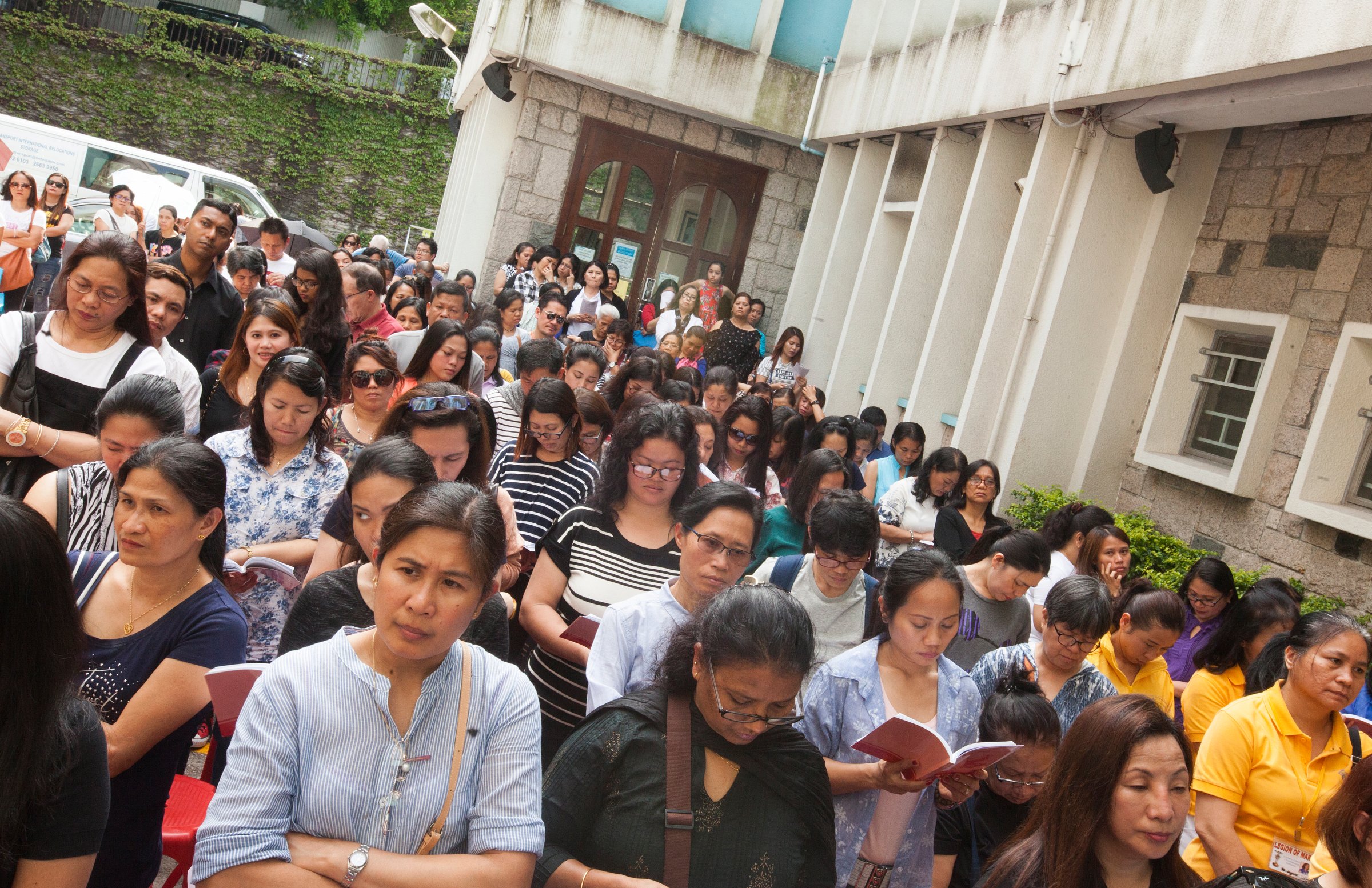
New research shows that migrant domestic workers in Hong Kong make a major economic contribution on the city, revealing for the first time that the mostly female workforce employed largely in childcare and housekeeping added $12.6 billion to the economy last year alone.
Hong Kong charity Enrich and global information services company Experian on Wednesday published the findings of a year-long survey examining just how much money migrant domestic workers pumped through the city in 2018. There are approximately 385,000 migrant domestic workers in Hong Kong, representing close to 10% of the city’s working population. Most of them are from the Philippines and Indonesia.
Read more: ‘Mila,’ the Opera that Depicts the Lives of Domestic Helpers
The study found that beyond making major economic contributions to Hong Kong, a semi-autonomous region of China and one of Asia’s leading financial centers, domestic workers also play a key role in increasing the city’s female work force participation by relieving women of childcare responsibilities during the daytime. This ultimately allows many households to earn a higher income and increases overall family financial well-being. The cost of hiring domestic workers is at least three times cheaper than alternatives such as nurseries and private tutors, the report says.
“The dual income individual families are able to access has significant knock-on effects, and allows them to attain a higher socioeconomic status,” Lucinda Pike, executive director of Enrich, told TIME.
With more money coming in, families can invest in property, cars, and more educational opportunities for their children, allowing them to achieve a higher quality of life.
The report also looked at the economic impact of domestic workers in Singapore and Malaysia, two Southeast Asian countries where migrant workers are commonly employed. While domestic workers have the largest economic footprint in Hong Kong, the research showed that they face some of the harshest economic conditions.
Read more: Asylum Seekers Struggle to Survive in One of the World’s Most Expensive Cities
Hong Kong consistently ranks among the world’s least affordable cities, and many domestic workers live in cramped quarters tucked away in their employers’ homes. Some 83% of domestic workers in Hong Kong reported being in debt, compared with 34% and 65% in Singapore and Malaysia respectively. Domestic workers often go into debt just to land a job in the first place; according to the Hong Kong-based Justice Center, almost 80% had to borrow money to help cover recruitment costs.
Moreover, the report found that just 18% of domestic workers in Hong Kong have bank accounts.
“It’s a combination of lacking the minimum balance and the personal documents required, as well as not understanding the need for a bank account,” Ben Elliott, the CEO of Experian Asia Pacific told TIME.
The circumstances in the city also make it difficult for them to open one; they traditionally have only Sundays off, when banks are closed.
In light of financial disparities and the substantial contribution that domestic workers make to the economy, the report urges the Hong Kong government to implement policies that would enable greater and safer access to financial services for domestic workers. This includes easing regulations for them to open bank accounts and cracking down on informal institutions that offer money-lending services to domestic workers at high interest rates.
Sisca Margaretta, chief marketing officer of Experian, said that on a macro level domestic workers enable high growth in their host countries, making them an integral part of the economy that should be supported instead of marginalized.
“The number of women in my team is staggering, the number of working moms is staggering,” said Margaretta. “If we were to take them all out, what would it do to the productivity of the economy?”
More Must-Reads from TIME
- Donald Trump Is TIME's 2024 Person of the Year
- Why We Chose Trump as Person of the Year
- Is Intermittent Fasting Good or Bad for You?
- The 100 Must-Read Books of 2024
- The 20 Best Christmas TV Episodes
- Column: If Optimism Feels Ridiculous Now, Try Hope
- The Future of Climate Action Is Trade Policy
- Merle Bombardieri Is Helping People Make the Baby Decision
Write to Hillary Leung / Hong Kong at hillary.leung@time.com